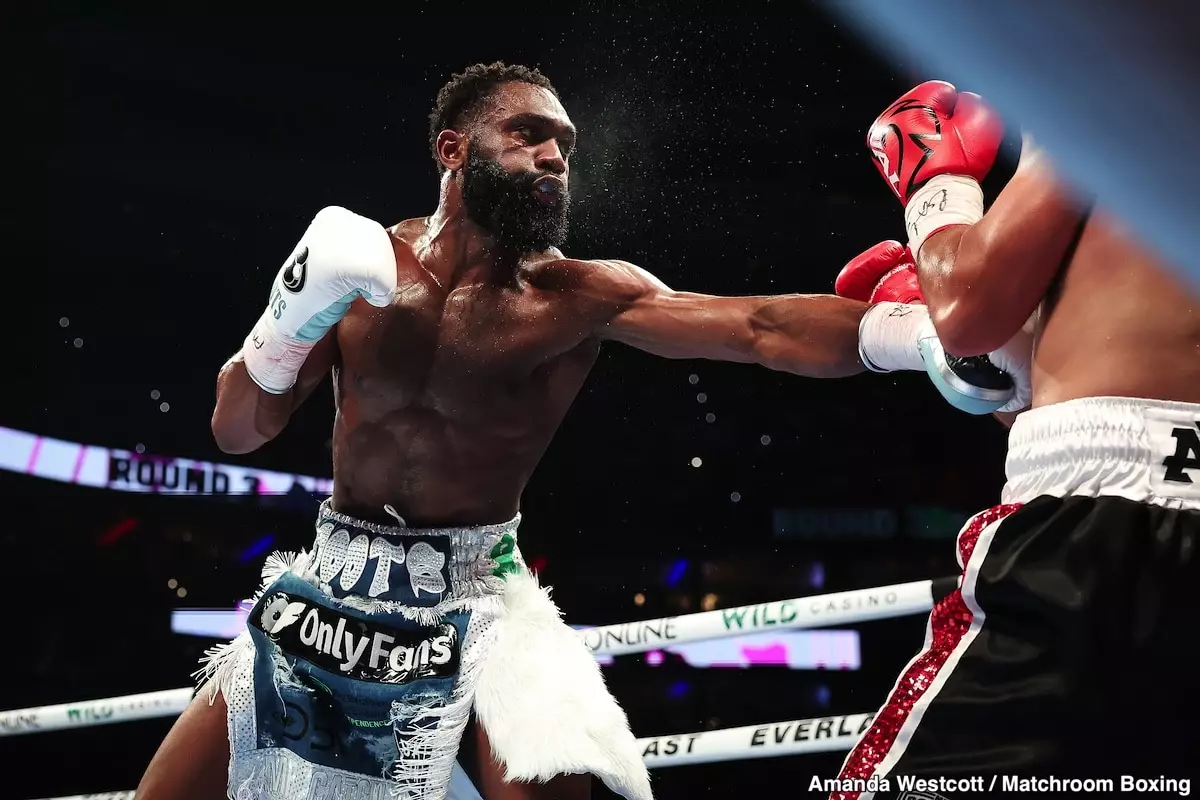The world of boxing often revolves around promotional agendas and the intricate negotiations that accompany them. Recently, discussions have arisen about a potential doubleheader featuring rising stars Jaron ‘Boots’ Ennis and Karen Chukhadzhian, along with Jesse ‘Bam’ Rodriguez defending his title against Pedro Guevara. Scheduled for November 9th in Philadelphia, this event exemplifies the delicate balance of interests swirling around the sport. Promoter Eddie Hearn, known for his assertive strategies, aims to position Ennis in his hometown, but the negotiations expose deeper intricacies in boxing promotions, demonstrating the challenges faced even by prominent figures in the field.
Hearn’s Strategic Moves
Hearn’s hopes to advocate for a match in Philadelphia stem not just from geographical loyalty but from a desire to harness the momentum of Ennis’s prior performances. His previous victory over Chukhadzhian—garnering unanimous scores of 120-108—highlights the potential lopsidedness of a rematch. However, Hearn’s attempts to divert Ennis towards a more compelling matchup, such as a unification fight against WBO welterweight champion Brian Norman Jr., reveal the thin line between ambition and practicality in boxing promotions. The rejected budget presented by Hearn—$1.7 million as opposed to the Norman camp’s expected $2.2 million—illustrates the financial tussles promoters regularly navigate. The decision to pursue Chukhadzhian instead of Norman Jr. may reflect a larger trend in which marquee matchups often remain elusive, leaving both boxers and fans yearning for more significant action.
Rodriguez’s impending defense against Guevara invites speculation about the attraction of this card, especially considering the unenthusiastic anticipation surrounding Ennis’s rematch. While Rodriguez holds an impressive record of 20-0, the environment in Philadelphia may not be suited for his Texas-based fanbase. This raises questions about venue suitability and fighter exposure, as an engaging co-feature will be critical to generating interest for the event. Despite the financial incentives offered by Hearn, the question remains whether these fights can capture the public’s attention in the same measure that more high-profile bouts would.
Ultimately, the discussions surrounding this potential doubleheader illuminate a broader concern within boxing: the sport’s obligation to its fans. Has the compelling nature of the sport been dulled by the prominence of financial negotiations? With the upcoming date drawing closer, Hearn needs to ensure that both fighters are not only well-compensated but are also engaged in fights that resonate with boxing enthusiasts. Otherwise, the outcome could be a lackluster event characterized by hesitance rather than excitement—an issue that plagues boxing at large, particularly in an era where fan loyalty can be fickle.
While the Philadelphia doubleheader presents an opportunity for growth and future confrontations within this vibrant boxing community, the negotiations that dictate these opportunities must prioritize engagement and competitiveness for the fans, thus preserving the sport’s rich tradition.

